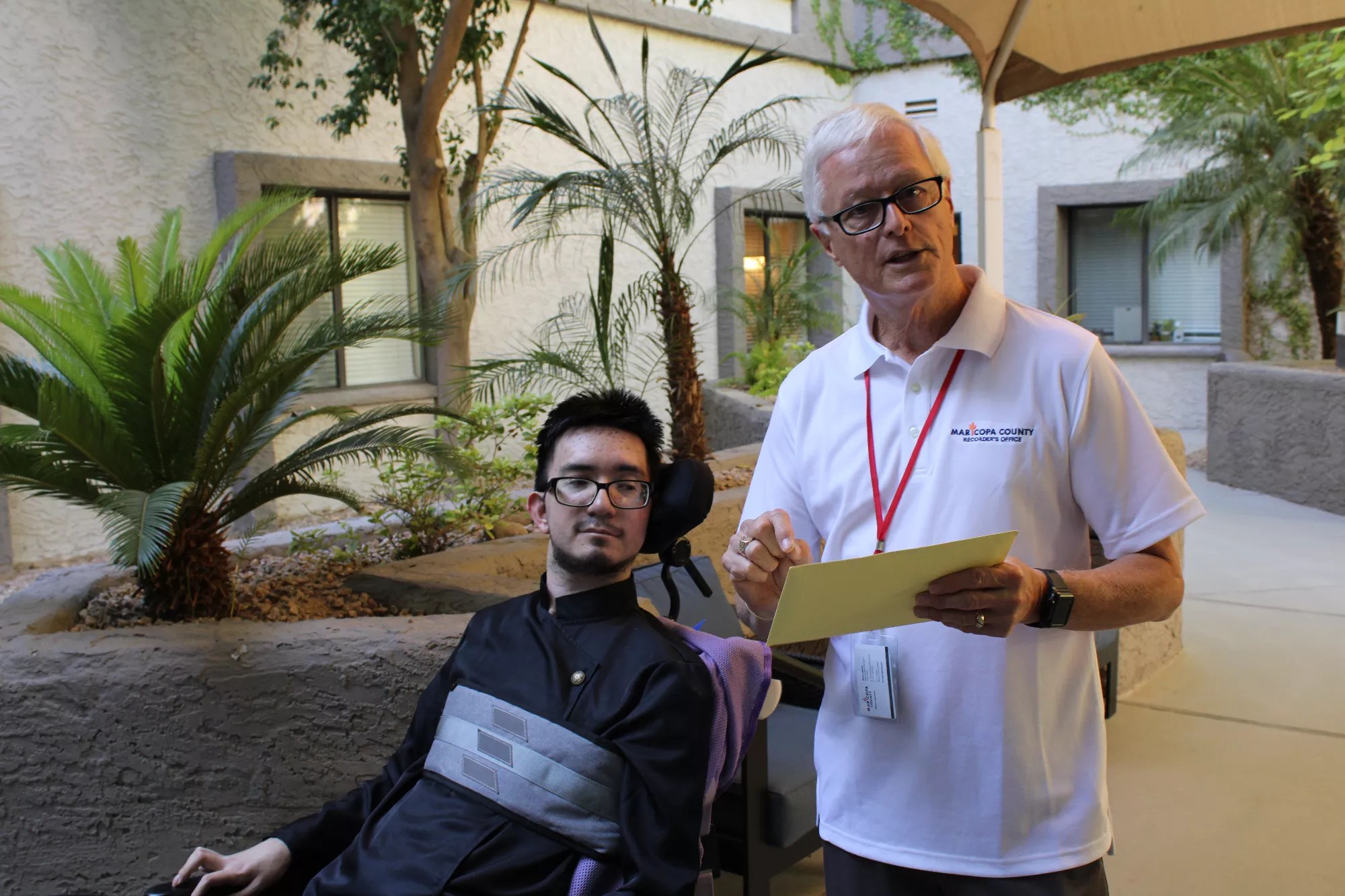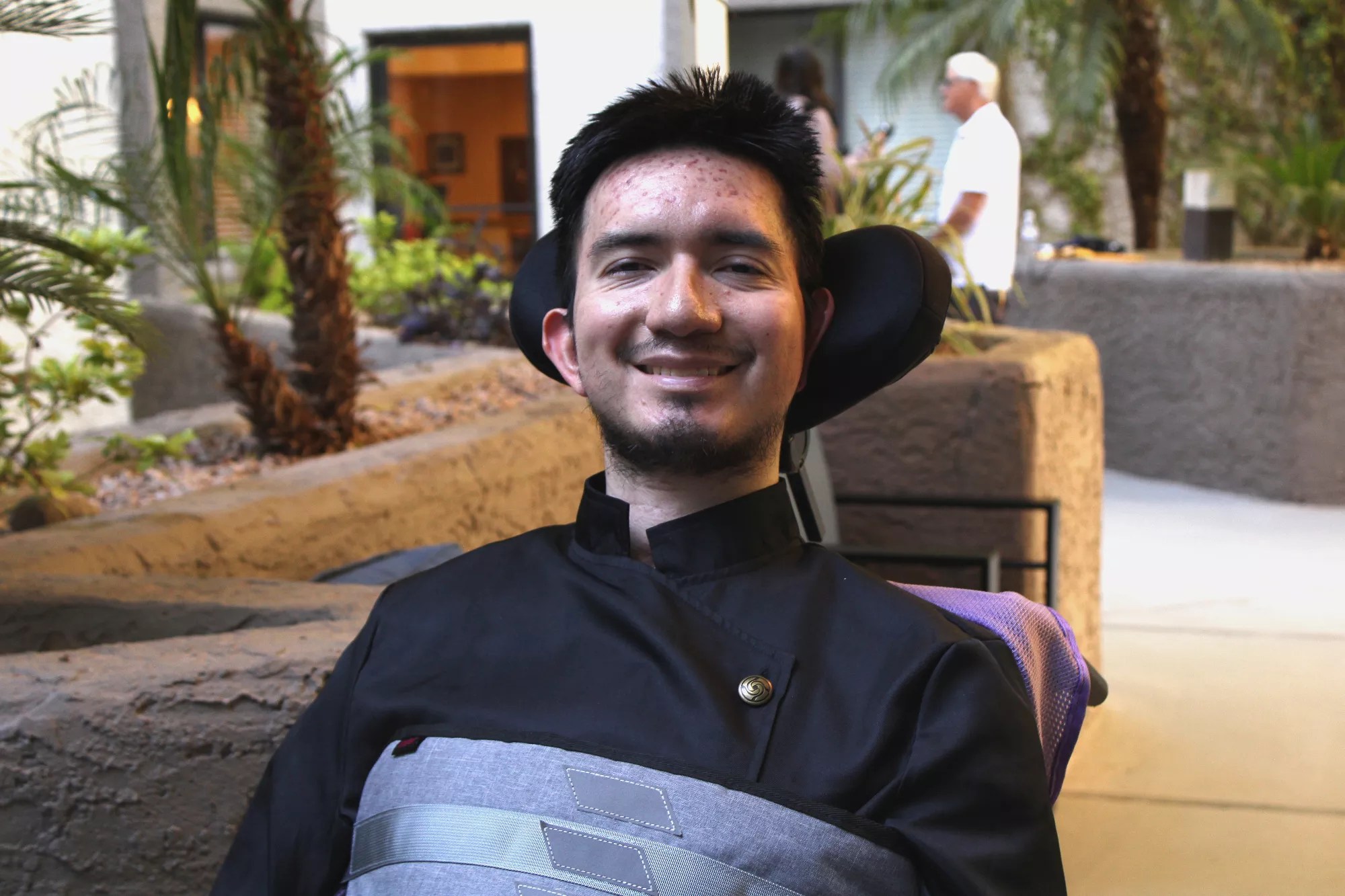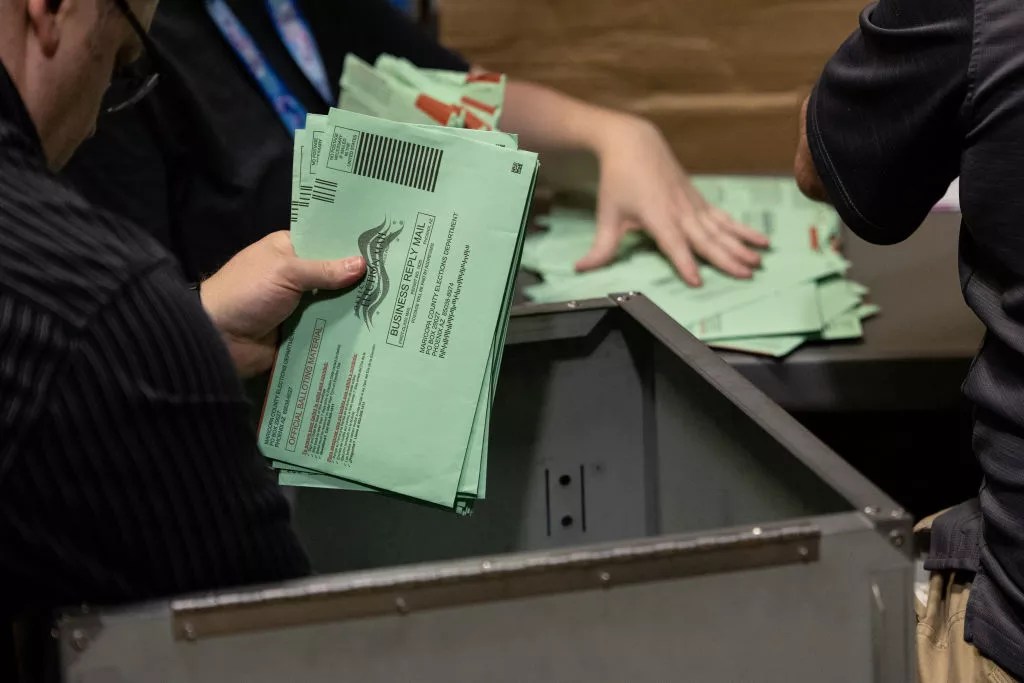
Morgan Fischer

Audio By Carbonatix
Two years ago, 21-year-old Yeshua Loya was in a car accident that left him paralyzed from the chest down. He uses a wheelchair and has limited mobility in his hands, hampering his ability to write, much less fill out a two-page paper ballot.
But this year is the first presidential election in which Loya could vote, and he was determined to do so.
“I was just excited to vote. Everybody should vote. It’s our national duty to make sure our voices are heard,” Loya said. “I can’t do much now in my condition; the least I can do is vote.”
For Loya, the least he can do requires a lot. If not for the Maricopa County Recorder’s Office’s Special Election Board, voting would be much more difficult, if not impossible.
The Board is a branch of the recorder’s office that travels around the county – sometimes trekking for nearly two hours – to help disabled voters cast their ballots. Several federal laws, including the Americans with Disabilities Act and Voting Rights Act, mandate that municipalities provide accessible voting options for people with disabilities. The process of registering to vote, utilizing online resources, going to a polling place and casting a ballot must be accessible, both in-person or when voting absentee.
In compliance with federal law, Maricopa County relies on the SEB to ensure residents have accessible voting options, despite any physical barriers. Connecting with residents online or through nursing facilities, a two-person bipartisan team – one Democrat and one Republican – travels to the voter to walk them through the process.
“It’s like taking a polling booth to the resident,” SEB staffer Michael Brasier explained.
For Loya, that meant having Brasier and fellow SEB employee Monica Murray travel to Plaza Healthcare, the Scottsdale nursing home where Loya lives. Using Loya’s sealed ballot, Brasier read each position and initiative out loud and marked the candidate or answer to ballot questions that Loya chose. It was a “pretty smooth, straightforward process,” Loya said.
Due to federal law, Phoenix New Times was prohibited from witnessing Loya cast his actual vote. Instead, Braiser used a mock ballot to demonstrate the process. Loya said he cast his actual vote for former President Donald Trump.
“It would have been very difficult for me to have been able to go out and vote,” Loya said. “I was grateful for that opportunity.”

Yeshua Loya utilized the Special Election Board to cast his first-ever vote for president this year.
Morgan Fischer
‘Invaluable’
Maricopa County’s ballot this year is much more expansive than just the presidential ticket. It took Loya 30 minutes to complete the two-page ballot with 16 propositions. After he finished, Braiser and Murray helped Loya sign an attached affidavit. Then they resealed the ballot and returned it to the county’s election department to be counted.
And that’s on the quick end. Board members have spent up to an hour and a half helping some voters complete their ballots.
“You have such rewarding experiences,” Brasier said of working for the SEB. “You see people that are confined to their bed, or they can’t walk, or they can’t see, or they’re not able to hold a pen in their hand to fill out the ballot.”
SEB provides services to many voters who would be disenfranchised without the program. At Plaza Healthcare specifically, 13 voters used SEB’s services to support their voting. Another 15 were helped by SEB to register to vote. The facility is home to 140 people, Plaza staffer Nicole Durst said.
“Most of our residents are unfortunately unable to leave the facility to be able to vote,” Durst said, and without SEB’s services, “they wouldn’t be able to have their voices heard. And that’s so important for them, especially during our election season.”
Catherine Sienko, the president of the Arizona Association of the Deaf, called the SEB’s work “invaluable” and said it “plays a significant role in supporting accessible voting options.”
In an email to Phoenix New Times, Sienko said, “Accessibility in voting is critical, especially for the Deaf and Hard of Hearing community, to ensure they can make informed decisions and have an equal voice in our democracy. Without proper access and resources, DHH individuals face significant barriers that can hinder their ability to fully participate in the electoral process, leading to underrepresentation”
April Reed, the vice president of advocacy for Phoenix’s Ability 360, a disability advocacy and services organization, said the SEB plays a “crucial role in ensuring that people with disabilities have equitable access to the voting process.”
She wrote in an email, “Having a physical disability or a confining illness often is a very isolating experience. And many miss opportunities to participate in the community.”

Disabled voters seeking help filling out their ballots should make an appointment with the Special Election Board as soon as possible.
John Moore/Getty Images
How to get assistance
While 13 voters might not seem like that many, the number of people the SEB has helped this election season has skyrocketed. Murray said she provide 80 accessible ballots when she started four years ago. This year, the board provided 1,075 accessible ballots. The board, which consists of 24 staffers, also has mailed out 470 large print ballots and 34 braille ballots.
“You get so many people that are just so grateful and so appreciative for what you’ve done to help them,” Braiser said. “We hear all kinds of stories. You just come away feeling so good.”
With Election Day approaching, voters needing SEB’s assistance should act fast. Services are provided on a first-come, first-served basis. Residents can connect with the board at SEB@risc.maricopa.gov or by calling 602-506-1511. When making a request, residents should provide the voter’s name, address, date of birth, last four digits of their social security number and their phone number, according to Maricopa County’s website.
The SEB will continue to assist voters, even on Election Day. However, the last appointments will “stop being scheduled around 4 p.m. on to ensure plenty of time for that ballot to be voted and delivered by the 7 p.m. deadline,” said Maricopa County Recorder’s Office spokesperson Taylor Kinnerup.
Maricopa County provides other accessible services at the polls for those who are able to get to a polling station but may require additional assistance. All polling stations are ADA-compliant, and voters can request that a poll worker help them mark their ballot. Several kinds of accessible ballots are available, including large print, touch-screen, audio-only and Sip and Puff, the latter engineered for voters who have almost no use of their hands. Not all options are available at all polling locations.
If a voter is unable to leave their vehicle, there is an option for them to vote while remaining inside their car. Each polling location posts signs with a phone number for voters to call when they arrive. Once called, a poll worker will come to the voter’s car to facilitate the process of curbside voting.